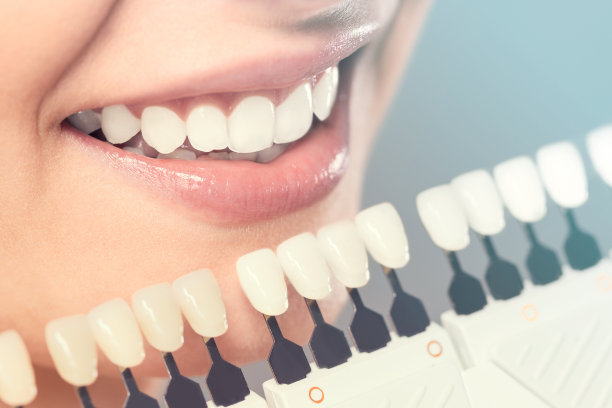The Essential Guide to Extracting a Tooth and Ensuring Smooth Recovery for Better Oral Health
Summary: Extracting a tooth is a common dental procedure that, although sometimes necessary, can be daunting. This essential guide provides a comprehensive overview of the tooth extraction process and emphasizes the importance of recovery for optimal oral health. From understanding the reasons behind tooth extraction to exploring recovery strategies, this article aims to equip patients with the knowledge they need for a successful experience. By adhering to proper aftercare, individuals can ensure that their oral health remains strong and prevent complications that may arise post-extraction. This guide is both informative and practical, serving as a resource for anyone considering or undergoing a tooth extraction.
1. Understanding the Need for Tooth Extraction

Tooth extraction is often performed due to various issues such as severe decay, overcrowding, or impacted teeth. It’s essential for patients to recognize that such procedures are conducted with the intention of protecting overall dental health. When left untreated, problematic teeth can lead to further complications, including infections that may affect surrounding teeth and even the jawbone.
A common reason for tooth extraction is the presence of wisdom teeth, which may become impacted and cause significant pain or misalignment. Additionally, advanced periodontal disease can weaken the foundation of teeth, necessitating their removal to prevent further health issues. Understanding these factors can help patients accept the importance of the procedure.
Furthermore, it is vital to engage in a consultation with a dental professional to discuss the necessity of tooth extraction. The professional assessment will determine the best course of action and ensure that patients are well-informed about their dental health.
2. What Happens During the Extraction Procedure
The actual tooth extraction process varies depending on the complexity of the case. Simple extractions are often performed on teeth that are visible in the mouth, while surgical extractions may be required for impacted teeth buried beneath the gum line. Anesthesia, either local or general, is administered to ensure that the patient experiences minimal discomfort during the procedure.
During the extraction, the dentist gently loosens the tooth from its socket utilizing special instruments. For surgical extractions, the procedure might involve making incisions in the gums to access the tooth. Regardless of the type, the dentist will focus on minimizing trauma to the surrounding tissues, allowing for a smoother recovery.
After the tooth is removed, individuals typically receive post-operative care instructions, including guidance on managing pain and promoting healing. This step is crucial, as proper aftercare significantly influences recovery speed and effectiveness.
3. Essential Recovery Tips Post-Extraction
Recovery after a tooth extraction is a critical phase that can impact overall oral health. It begins immediately after the procedure and may last for several days. One of the primary recommendations is to rest and avoid strenuous activities, allowing the body to focus on healing. Patients are encouraged to keep their heads elevated to minimize swelling.
In addition, following a soft-food diet is essential during the initial recovery period. Foods such as yogurt, applesauce, and smoothies are gentle on the healing site. Avoiding hot, spicy, or crunchy foods is advisable, as they can irritate the extraction site and complicate healing.
Additionally, maintaining oral hygiene is vital; however, patients should avoid brushing the extraction site directly for the first 24 hours. Rinsing with warm salt water can help keep the area clean and promote healing. It’s crucial to monitor for any unusual symptoms such as excessive bleeding or signs of infection, prompting a follow-up with the dentist if necessary.
4. Maintaining Long-Term Oral Health After Extraction
After a tooth extraction, establishing a robust oral health routine is paramount for preventing future dental issues. Regular visits to the dentist for cleanings and check-ups can help monitor oral health and detect potential problems early. Patients should also maintain a daily regimen of brushing and flossing to keep their remaining teeth healthy.
Additionally, incorporating a balanced diet rich in vitamins and minerals can aid recovery and support oral health. Foods high in calcium and vitamin D are crucial for maintaining strong teeth and bones. Staying hydrated also promotes healing and helps avoid dry socket, a painful condition that can occur post-extraction.
Finally, patients should talk to their dentist about possible restorative options, such as implants or bridges, if the extracted tooth was a permanent one. This conversation can ensure that any gaps left by the extraction are addressed, maintaining both aesthetics and functionality for long-term oral health.
Summary:
The article provides a thorough exploration of tooth extraction, elucidating its necessity, procedural details, recovery tips, and long-term oral health strategies. Knowledge and preparation can make the experience less daunting for patients, fostering a smoother journey toward recovery. Engaging in preventive measures and seeking ongoing dental care will ultimately serve to enhance oral health and well-being.
This article is compiled by Vickong Dental and the content is for reference only.



